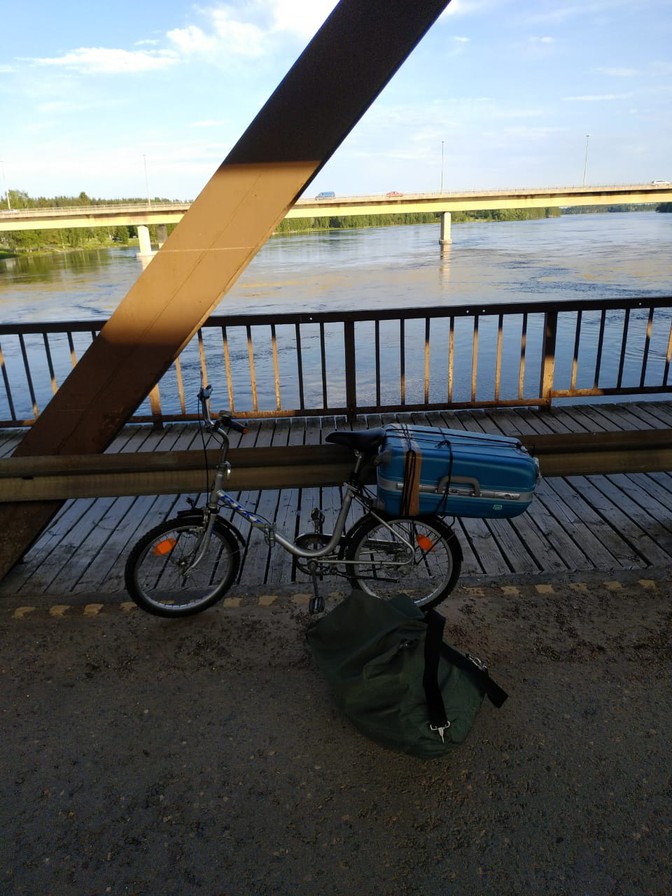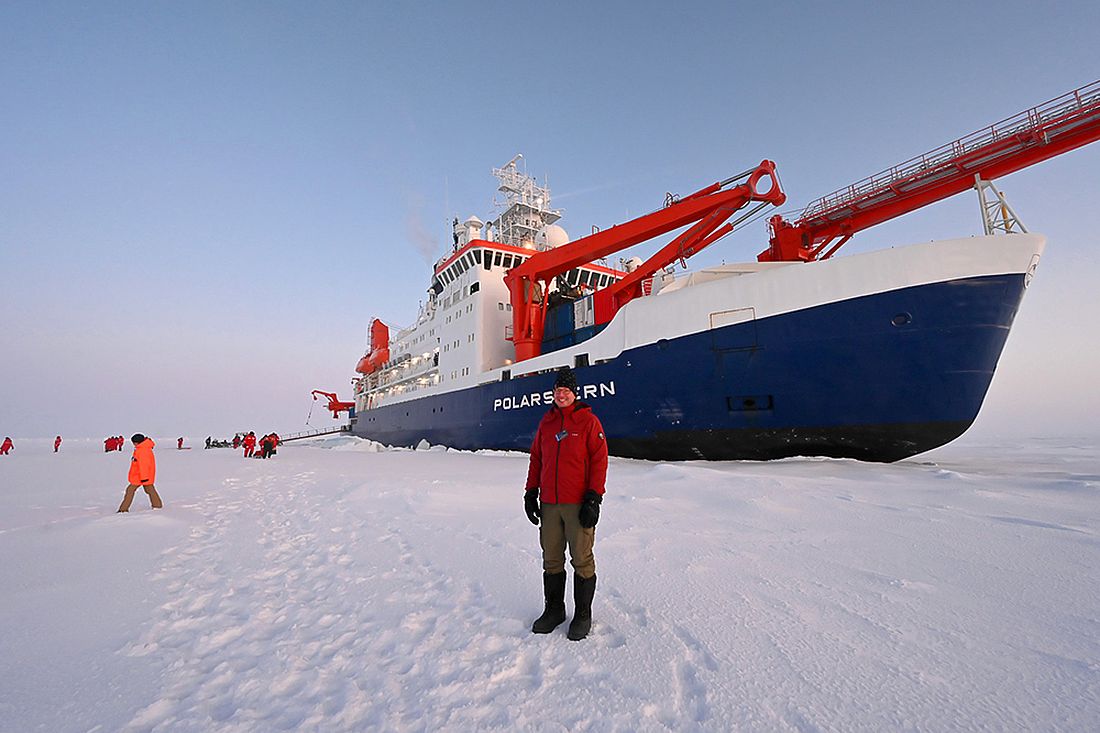Because of the pandemic, the journey to St. Petersburg from the Arctic turned into an unforgettable adventure for the Russian scientist. Alexey Niubom had to sail by ship, travel by train, bicycle and taxi ordered by the border guards.
32-year-old engineer Alexey Niubom is an employee of the Arctic and Antarctic Research Institute in St. Petersburg, one of the members of the research group at MOSAiC. It is an interdisciplinary drifting observatory for the study of the Arctic climate. There are about 500 scientists and additional personnel working there – they replace each other while working on board of the Polarstern research ship. The scientists are conducting experiments and collecting data on the weather, ice, oceans and ecosystems of the Central Arctic.
Alexey Niubom operated the seismic system for monitoring sea ice moving and assisted in other ice related projects. It was planned that the crew would stay on board until April. Then they would be picked up by a plane from the Norwegian archipelago of Spitsbergen. But in March, Norway suspended overseas travel due to the pandemic.
The cientists realized that they would not go ashore until mid-June. By that time, they had been at sea for almost five months.
“We walked without masks and gloves freely. We were the only ones in the world who could play football matches, though on ice”, The Atlantic writes.
At first, it looked as though Niubom’s crew would be able to head home by a Swedish icebreaker that was supposed to resupply Polarstern in June. Then Swedish travel restrictions came into effect and the ship canceled the voyage.
After several weeks of unsuccessful attempts to rent an icebreaker, MOSAiC coordinators came up with an alternative plan. The Polarstern was deliberately frozen into a glacier for research. The team decided to get it out of the ice and sail hundreds of miles south to meet a couple of German ships. And in early June, the ship would be able to reach the port in the German city of Bremerhaven. Then each scientist would have to think about how to get home, given that many flights were still prohibited.
Alexey arrived in Bremerhaven in early June, but there were no flights from Germany to Russia until the end of the month. MOSAiC coordinator Elena Shchertkova-Paulents tried to help him. She found flights from Germany to Finland. It was not far to St. Petersburg from there, but trains and buses did not cross the border because of the pandemic. However, it could be crossed by a private car.
The following plan was developed: the scientist was to fly to Helsinki, take a train to the Finnish border town of Imatra, and then ride a bicycle 16 kilometers to Russia.
Alexey and Elena found an inexpensive folding bike on eBay. After that, Alexey finally went home. The scientist’s luggage did not fit the tiny bicycle and fell on the road, Alexey had to fasten it again. In addition, the bike had broken front and rear lights. The scientist was driving in the dark through unfamiliar countryside, his phone was not connected to the Internet.
“I had to stop people on the street and ask how to get to Russia. It was getting dark, and I was afraid that I would be left in the forest with a broken bike without food and mosquitoes would eat me”, Alexey shared.
When the scientist arrived at the border, he was detained by a woman from the health department. In her opinion, Aleksey should not have taken a taxi home himself; the official insisted that someone had to pick him up personally.
Four hours later, the border police and the woman from the Ministry of Health surrendered. A taxi was ordered for Alexey, and at half past three in the morning he finally saw his family. According to The Atlantic, the polar explorer was especially happy that his two-year-old daughter recognized him.
The journalist asked if Nyubom would like to join a similar expedition again.
“No, what if a new virus will appear”, Aleksey joked. But he admitted that he was lucky to take part in that: “Few of us will ever set foot on the ice-covered ocean, live and work on it for months while the sun is creeping over the horizon and the world is awakening from the long polar night”.
Text: Angelica Stepanova, Photo: theatlantic.com






